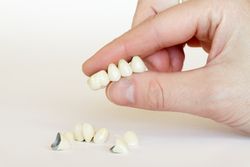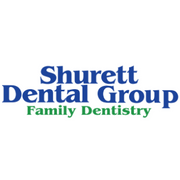What Dental Patients Want to Know About Crowns and Bridges

Crowns and bridges are two popular dental prosthetics that restore damaged or missing teeth and improve your smile’s appearance. Each offers unique advantages that may or may not work for your specific needs. If you’re curious about these treatment options, here are answers to a few frequently asked questions about dental bridges and crowns before you speak to a dentist.
Crowns and Bridges FAQ
What Are Dental Crowns?
Crowns are essentially caps that are placed over teeth. These prosthetics are crafted from durable materials—such as porcelain, composite resin, or metal—that can withstand natural chewing activity and protect against further damage. They are also custom-molded to match the appearance of your original teeth. Once the prosthetic is designed, it is bonded to the tooth for a secure fit.
What Are Dental Bridges?
 The configuration of bridges can vary, but they typically consist of one or more artificial teeth—known as “pontics.” Abutments are placed on the edges of the pontic to secure it in the proper position. These abutments may be dental crowns placed on existing teeth or dental implants that are permanently affixed to the jawbone beneath the gum tissue.
The configuration of bridges can vary, but they typically consist of one or more artificial teeth—known as “pontics.” Abutments are placed on the edges of the pontic to secure it in the proper position. These abutments may be dental crowns placed on existing teeth or dental implants that are permanently affixed to the jawbone beneath the gum tissue.
Should I Consider Crowns or Bridges?
You may be a candidate for crowns or bridges if your teeth are damaged or missing. Crowns, for example, are often used if a tooth is chipped or compromised by a root canal. While crowns are used to restore partially damaged teeth, bridges are used to replace teeth that are missing entirely—such as those that had to be extracted.
How Do You Care for Crowns and Bridges?
To keep the devices clean—and protect surrounding teeth and gum tissue—you must brush and floss regularly. If you have a bridge, interdental brushes and water flossers help clean hard-to-reach spots.
While these prosthetics are tough, chewing on hard objects—such as pen caps or popcorn seeds—may result in cracking. You should also use caution when consuming foods or beverages that cause staining, as crowns and bridges don’t respond to traditional teeth whitening treatments.
What if Crowns and Bridges Aren’t Right for Me?
In the event that crowns and bridges aren’t right for you, there are other restorative and cosmetic treatments your dentist may offer. Veneers, for instance, can be applied to the front of teeth to cover up minor cosmetic issues. Dental implants and dentures may also be considered if you need to replace missing teeth.
Are you curious to learn how crowns and bridges can enhance your smile? As a trusted dentist of Conyers, GA, Schurett Dental Group can help you explore a variety of cosmetic solutions to help restore damaged and missing teeth. Utilizing advanced technology, this clinic will personalize your treatment so that you can protect your oral health in a comfortable and stress-free fashion. Visit this family dentistry provider online to learn more about these services or call (770) 860-8760 to schedule a convenient appointment.
About the Business
Have a question? Ask the experts!
Send your question

